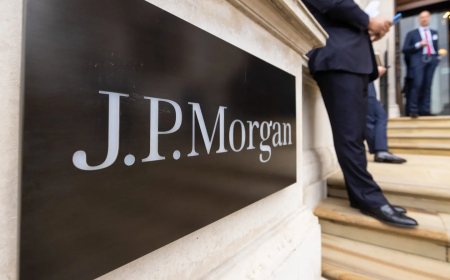Pakistan to Explore Blockchain for Handling Billions in Overseas Remittances: Adviser
Pakistan to Explore Blockchain for Handling Billions in Overseas Remittances: Adviser

Blockchain could enhance the efficiency and reduce the cost of remittances from migrant workers, according to Bilal bin Saqib.
Key Points:
- Pakistan, a major recipient of remittances from overseas citizens, is exploring blockchain technology to streamline the transfer process, according to Bilal bin Saqib, chief adviser to the finance minister on the newly formed Pakistan Crypto Council (PCC).
- The PCC is pushing for a well-defined regulatory framework to support blockchain and Web3 innovation.
- It is also evaluating initiatives such as tokenizing real-world assets while ensuring compliance with Financial Action Task Force (FATF) regulations, Saqib stated in an interview.
Pakistan, one of the top 10 countries receiving remittances, is considering blockchain technology to enhance the efficiency of cross-border transfers, according to Bilal bin Saqib, chief adviser to the finance minister and a member of the newly formed Pakistan Crypto Council (PCC).
In 2023-24, overseas Pakistanis transferred over $31 billion through conventional channels, which are often costly and time-consuming, with fees surpassing 5%, Saqib noted.
Remittances refer to money or goods sent by migrants to their home countries, often serving as a crucial financial lifeline during crises and a catalyst for long-term economic growth.
"The PCC will explore blockchain-based solutions to make remittances faster and more cost-effective," Saqib said. "We also plan to invest in blockchain education, skill development programs, and Web3 innovation to nurture talent, create jobs, and stimulate economic growth."
Blockchain technology has the potential to streamline international fund transfers by eliminating intermediaries like correspondent banks, which could significantly lower the cost of cross-border transactions, as noted by the OECD in 2020.
Despite this potential, cryptocurrency and stablecoin trading remain prohibited in Pakistan under a 2018 directive from the State Bank of Pakistan (SBP), which bars financial institutions from facilitating crypto transactions.
Nevertheless, Pakistan ranks among the top five Asian countries in the 2024 Global Crypto Adoption Index by Chainalysis, with many citizens turning to digital assets as a hedge against inflation and currency volatility.
"This underscores strong demand despite the absence of clear regulations. With over 60% of Pakistan’s 240 million people under 30, our tech-savvy youth are well-positioned to drive blockchain and Web3 innovation," Saqib said. "The PCC is committed to unlocking this potential by pushing for a transparent and forward-looking regulatory framework."
The PCC is also exploring blockchain-based initiatives such as tokenizing real-world assets and establishing regulatory sandboxes while ensuring alignment with Financial Action Task Force (FATF) standards. Pakistan was removed from the FATF gray list in 2022.
"Unregulated crypto outflows pose a challenge," Saqib added. "Without oversight, cryptocurrencies can enable untracked cross-border transactions, worsening dollar shortages. The PCC’s priority is to create a robust and transparent regulatory framework that enforces know-your-customer (KYC) and anti-money laundering (AML) compliance across all crypto activities."
Regulatory frameworks for digital assets are evolving worldwide, including in Southeast Asia, following President Donald Trump's endorsement of the crypto industry after his U.S. presidential election victory.
Last week, Trump revealed plans to establish a strategic Bitcoin reserve, funded by BTC and other cryptocurrencies confiscated during enforcement actions. However, Saqib expressed uncertainty about whether such an approach would be suitable for Pakistan.
"While the idea of building a Bitcoin reserve from seized assets may seem appealing, Pakistan’s crypto enforcement efforts are still in their early stages, and large-scale confiscations are uncommon. Any move toward creating a strategic reserve would require thorough discussions with the IMF and FATF to ensure it does not compromise international support or Pakistan’s post-gray-list status," Saqib explained.
What's Your Reaction?
 Like
0
Like
0
 Dislike
0
Dislike
0
 Love
0
Love
0
 Funny
0
Funny
0
 Angry
0
Angry
0
 Sad
0
Sad
0
 Wow
0
Wow
0

































































